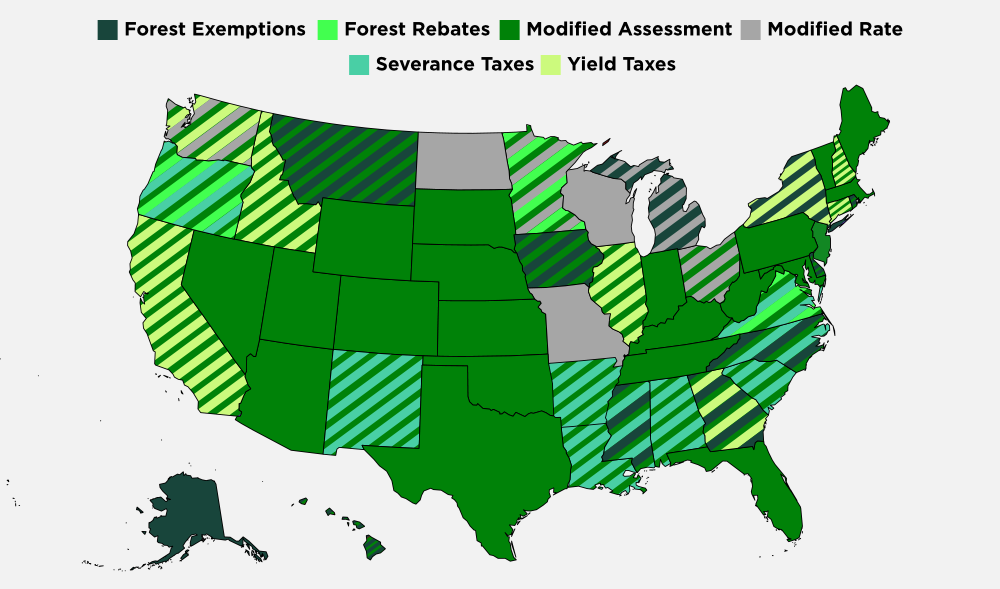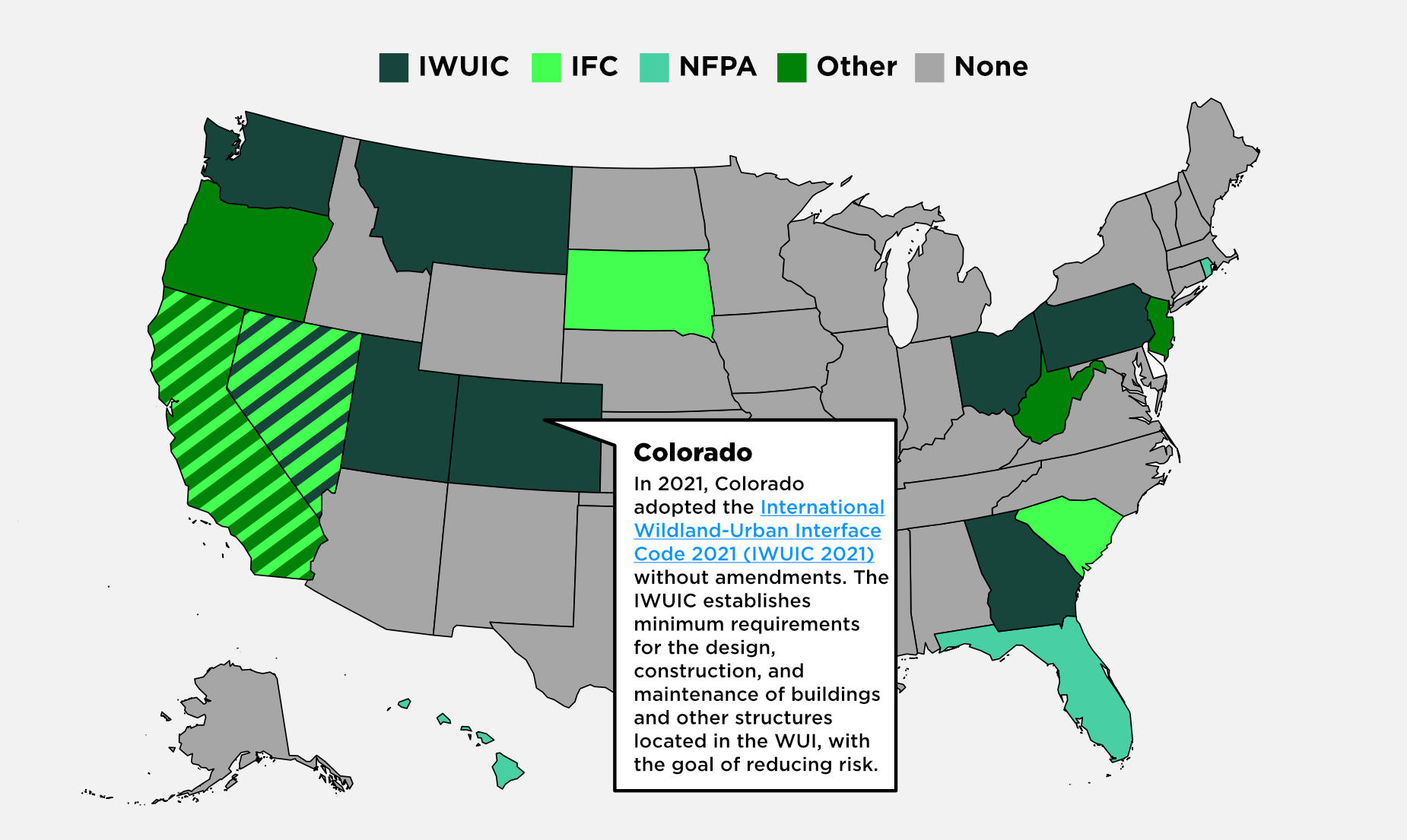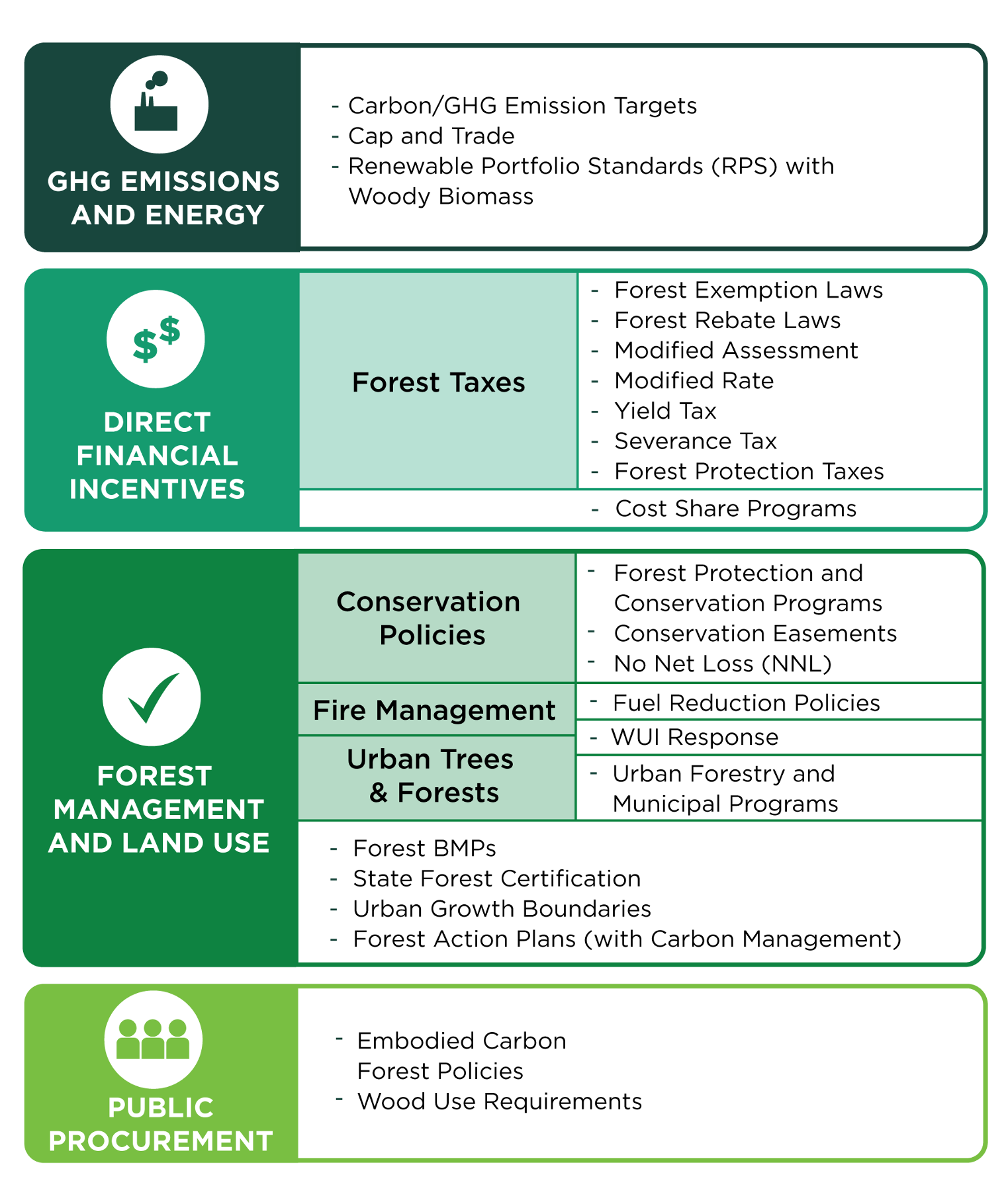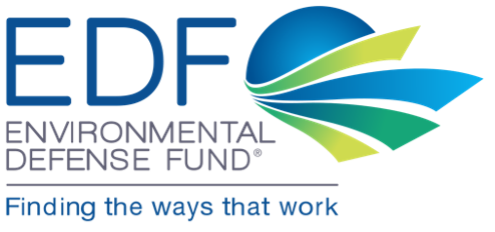Forest + Climate State Policy Initiative
Description
The Forest and Climate State Policy Initiative, with support and funding from the Environmental Defense Fund, collects, categorizes, analyzes, and tracks a range of state-level programs and policies that could contribute or detract from forests as a climate solution. These topics include carbon offsetting, climate-smart forestry, and related production, conservation, and land use planning activities.
This project serves as an in-demand resource for researchers, policymakers, planners, developers, practitioners, landowners, and myriad forest stakeholders.
Major activities have included the creation of a database of state-level policies, policy analysis reports and publications, and the development of maps showcasing a variety of state-level policies.
Project highlights
Analysis of compatibility between improved management carbon offset projects and preferential property tax programs: This article published in the Journal of Sustainable Forestry, titled "Navigating Dual Enrollment: Assessing Compatibility Between Improved Management Carbon Offset Projects and Preferential Property Tax Programs Across Nine States", assesses compatibility, while highlighting opportunities and barriers, for forest landowners to dual enroll in preferential property tax programs and improved forest management carbon offset projects.
Access the article here: https://www.tandfonline.com/doi/full/10.1080/10549811.2025.2527756
Map of Forest Property Tax Treatments by U.S. State: This map visualizes state-level forest preferential and other related tax treatments. This includes forest exemptions, forest rebates, modified assessment, modified rates, severance taxes, and yield taxes.
Map of State-Level Wildland-Urban Interface (WUI) Codes: This map shows state-level approaches to the wildland-urban interface (WUI) in the form of fire, building, administrative, and residential codes. Several states have adopted the International Wildland-Urban Interface Code (IWUIC) and International Fire Code (IFC) created by the International Code Council. Meanwhile, others have selected the National Fire Protection Association's (NFPA) Fire Code. Some states, like California, West Virginia, and New Jersey have developed their own standards which do not build upon these model codes.
| Forest Property Tax Treatments by U.S. State | State-Level Wildland-Urban Interface (WUI) Codes |
 |
 |
 |
Development of a Policy Framework This theoretical framework catalogues and categorizes state-level policies. Four key policy areas identified: 1) GHG Emissions and Energy, 2) Direct Financial Incentives, 3) Forest Management and Land Use, and 4) Public Procurement |
Collaborators/Team
- Graham Diedrich, FCCP
- Kylie Clay, FCCP
- Lauren Cooper, FCCP
- Eric Holst, EDF
Images/Logos




 Print
Print Email
Email